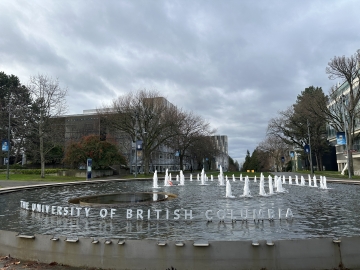On April 13, 2018, Waseda University hosted a seminar by Dr. Hiruta Kei, a Research Fellow in the Faculty of Philosophy at Oxford University. Dr. Hiruta, an expert on political philosophy and intellectual history, lectured on the topic of “What was anti-totalitarian political thought?: Hannah Arendt, Isaiah Berlin, and the crisis of liberal democracy.”
In this lecture, Hiruta noted that present-day scholars and journalists are looking back on the anti-totalitarian writings of Arendt and Berlin in an effort to better understand the re-emergence and threat of far-right movements in Europe and North America. Both Arendt and Berlin created many works addressing totalitarianism and its causes, and some recent books and articles have depicted the two authors as having very similar views.
However, Hiruta argued that Arendt and Berlin held very different views, so it is misleading to categorize them as having a unified view on totalitarianism and liberalism. Berlin saw totalitarianism as something brought about leaders who are idea-driven fanatics, seeking to create a utopian society at any cost. To Berlin, adequately formed liberalism, with properly protected negative liberty to deny excessive state power, could be a solution to totalitarianism. Arendt, on the other hand, saw totalitarianism as a product of rootless and insecure people who could be mobilized into a mass movement, capable of using the freedoms of liberalism to bring about a totalitarian regime.
The two authors’ focus on different historical examples was discussed as one possible source of this disagreement. Arendt’s works primarily discussed the example of Nazi Germany, whereas Berlin focused on Stalinism and the Soviet Union. As these works were being written and publishing during the Cold War, Berlin became an enthusiastic supporter of projects such as Encounter magazine, which published articles supporting Anglo-American liberalism while receiving covert financial support from the U.S. and British governments. In contrast, Ardent was critical of liberal governments’ creation of political propaganda, seeing it as detrimental to democracy.
After the lecture, Dr. Hiruta received a variety of questions from the audience, covering issues such as Ardent and Berlin’s views of Zionism and nationalism, their interactions with Marxism, and their conceptions of diversity and tolerance. In addition, there was consideration of how Arendt and Berlin might have viewed present-day issues such as hate speech laws, constitutional patriotism, and Brexit.
More information about Dr. Hiruta’s research on this topic can be found in a recently published journal article:
Hiruta, Kei. “A Democratic Consensus? Isaiah Berlin, Hannah Arendt, And The Anti-Totalitarian Family Quarrel.” Think, vol. 17, no. 48, 2018, pp. 25–37., doi:10.1017/s1477175617000306.








